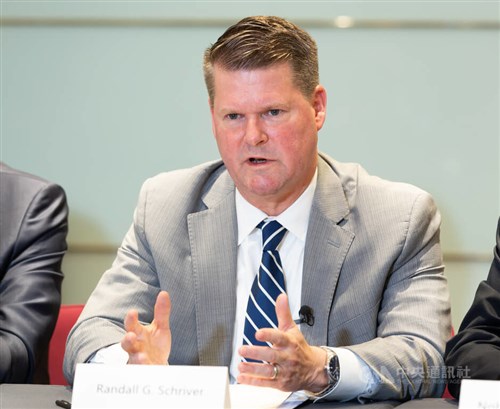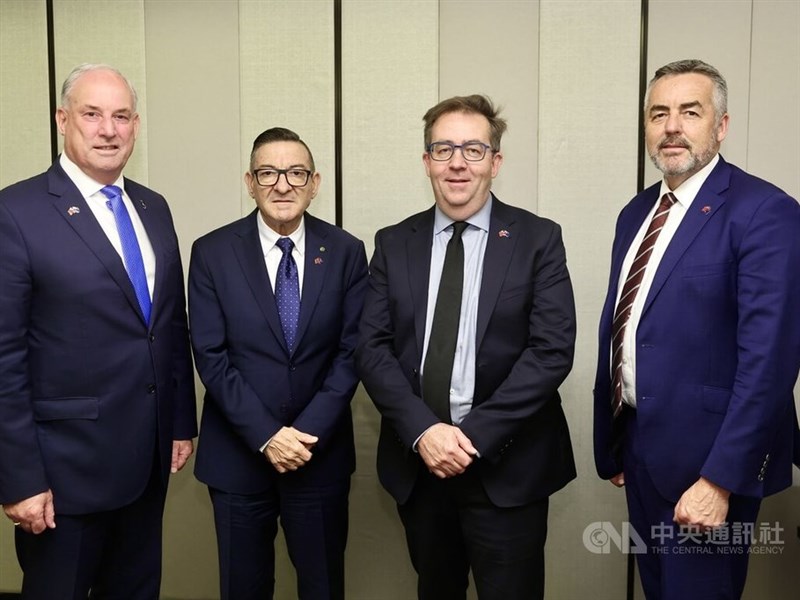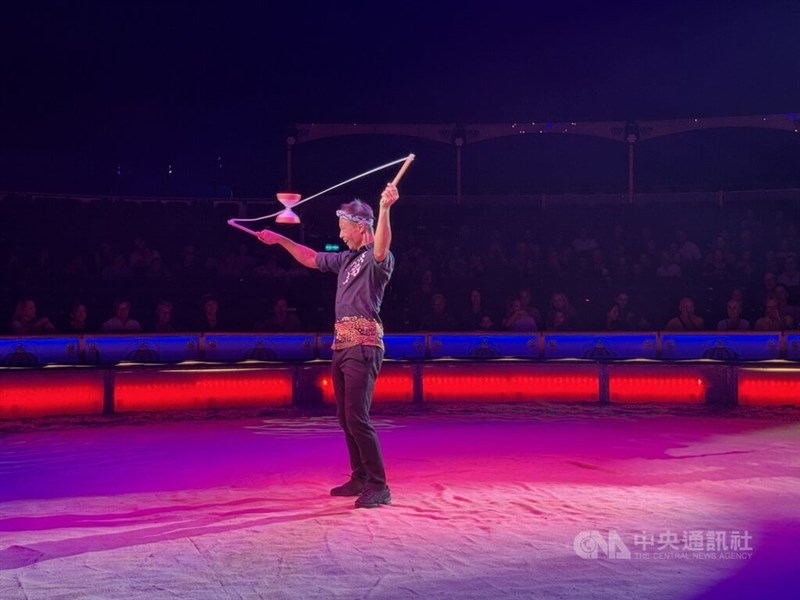INTERVIEW/Tech expert and witness to semiconductor boom, urges Taiwan to think big
04/20/2024 12:50 PM
Taiwan produces 90 percent of the world's high-end chips and has more than 50 percent of the global pure-play foundry market, a level of dominance that has had major world economies concerned.
(Full text of the story is now in CNA English news archive. To view the full story, you will need to be a subscribed member of the CNA archive. To subscribe, please read here.)
More in INTERVIEW
![U.S. intervention hinges on Taiwan's own readiness: Schriver]() U.S. intervention hinges on Taiwan's own readiness: SchriverU.S. military support against a Chinese invasion will hinge on Taiwan's preparedness to hold out on its own in the conflict's early stages, former Pentagon official Randall Schriver said Friday.11/15/2025 10:06 AM
U.S. intervention hinges on Taiwan's own readiness: SchriverU.S. military support against a Chinese invasion will hinge on Taiwan's preparedness to hold out on its own in the conflict's early stages, former Pentagon official Randall Schriver said Friday.11/15/2025 10:06 AM![Taiwan would make great CPTPP member: Australian lawmaker]() Taiwan would make great CPTPP member: Australian lawmakerTaiwan will be a great member of a regional trade bloc that Australia is part of, given its track record as a "trusted economic partner," a visiting Australian lawmaker said Monday.10/20/2025 06:20 PM
Taiwan would make great CPTPP member: Australian lawmakerTaiwan will be a great member of a regional trade bloc that Australia is part of, given its track record as a "trusted economic partner," a visiting Australian lawmaker said Monday.10/20/2025 06:20 PM![For Taiwanese circus performer, life on the road not all fun and games]() For Taiwanese circus performer, life on the road not all fun and gamesA man emerges from backstage into the ring, tosses a diabolo high into the air and catches it with a string. Then two, then three, juggling the hourglass-shaped tops with impeccable precision, as if they were extensions of himself.09/29/2025 07:55 PM
For Taiwanese circus performer, life on the road not all fun and gamesA man emerges from backstage into the ring, tosses a diabolo high into the air and catches it with a string. Then two, then three, juggling the hourglass-shaped tops with impeccable precision, as if they were extensions of himself.09/29/2025 07:55 PM
Latest
- Culture
2025 Kaohsiung Reading Festival opens; over 100 events planned
11/15/2025 10:07 PM - Culture
Taiwan heavy metal bands ready to rock Helsinki at the end of November
11/15/2025 09:48 PM - Culture
'Left-Handed Girl' continues award streak with L.A. and Stockholm wins
11/15/2025 08:10 PM - Politics
Taiwan calls on Beijing to stop 'hybrid coercion' against Japan
11/15/2025 07:18 PM - Business
Taiwan, Poland sign economic cooperation pact
11/15/2025 06:55 PM


